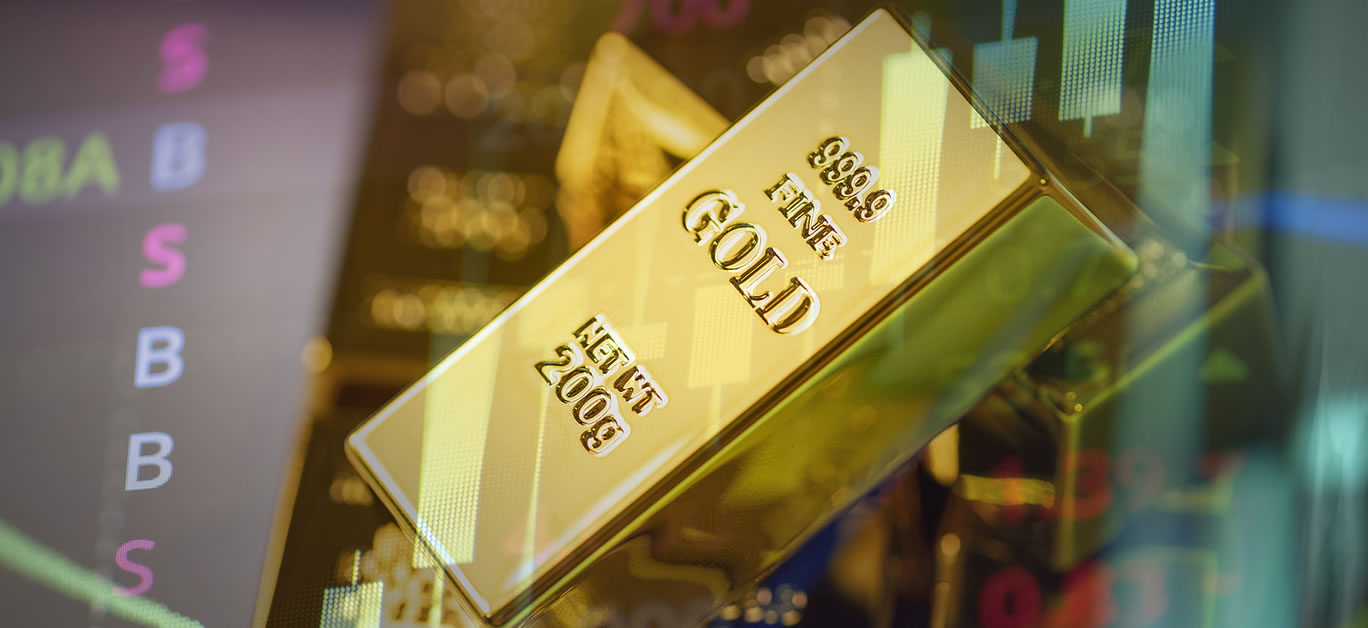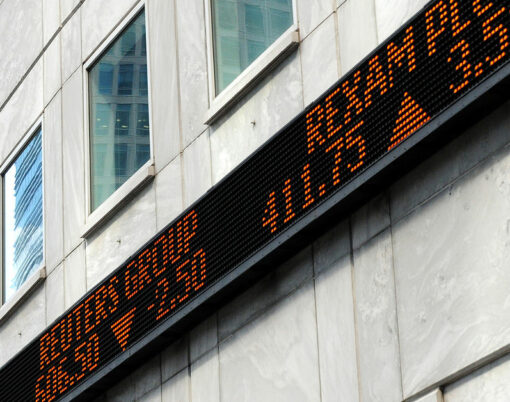For investors, gold has long been the go-to commodity of choice for many reasons. Not only is it a safe-haven asset that keeps and even increases in its value during financial crises, but it also presents a volatile market for traders to exploit for profit. But these days, there are two different options to choose from when it comes to investing in gold – physical gold (gold bullion) and digital gold – assets that are electronic representations of their physical counterparts; and the two are not created equal.
If you’re confused by the latter, then don’t be, because at a time when the world has moved well and truly into the digital age, it’s simply an example of how both assets and the market alike are moving with the times – just look at the success of NFTs, and how they are transforming the way we invest.
In the case of digital gold, it does, of course, come with its advantages and disadvantages – but so, too, does physical gold. The right asset to plunge your money also depends on what type of investor you are – so keep reading to find out which one is your perfect match.
What is physical gold?
Physical gold is an asset, or assets, made from real gold, and that investors are able to buy and keep physically. They come in the form of commodities like gold coins, gold bars, gold biscuits, and jewellery that hold value and are bought from either bank, the government, or private sellers, and are the more traditional option when it comes to gold investment.
When bought in bulk, physical gold is known as gold bullion, and its overall value is determined by its purity and mass. The face value given to it (like gold coins) doesn’t have any effect on the market, and purity refers to the absence of another metal or element within the gold. Generally, and with the same purity, the price of physical gold is uniform – which is one of the reasons it has long been recognised as one of the most reliable and durable assets to invest your money in.

What is digital gold?
As mentioned, the term ‘digital gold’ refers to gold assets that are electronic representations of their physical counterparts. Examples of such gold assets include sovereign gold bonds (SGBs), gold ETFs, multi-commodity exchanges (MCX) for futures and options trading, and gold wallets – some of which you may well have come across in your investment journey already.
Although the price of digital gold is the same as the price of pure physical gold, the type of gold asset you trade in determines your return on investment. Gold ETFs, for example, will give you different ROI based on the company shares you invest in, while gold wallets or SGBs will give you the same value as the purest physical gold.
Investors into digital gold can enjoy both full access and ownership, but unlike tangible, real-life gold, it is never in your possession physically. Instead, it’s only possible to lay your hands on the certificates that relate to them, which may then be exchanged for any physical gold commodity such as jewellery, gold bars, or coins.
Advantages of physical gold
Physical gold holds many advantages for investors who are willing and able to hold it for a long period of time. Firstly, it protects against inflation risks and offers investors high price stability, ensuring maximum safety from volatile markets. It is also easy to purchase, but it’s important to take care in doing so – sourcing your gold from banks in the form of gold coins or bars is the more desirable option, and the safest.
Changing possession and ownership of physical gold is also relatively straightforward, and thus makes for a great alternative to navigating the stock and real estate markets as many long-term investors do. What’s more, is that getting loans from banks against physical gold is easy – so owning this type of gold asset can place you in a powerful position financially.
Disadvantages of physical gold
On the other hand, it does come with its disadvantages. Somewhat unsettlingly, there is no assurance of the level of purity a gold commodity has when purchasing it – so you can never be 100 per cent sure of exactly what it is you’re getting. Purity is expressed only in karats, with 24-karat gold pieces serving as the purest of all. For jewellery, the most suitable purity level is 22-karat, as it is mixed with other metals so that it is more durable – but the number of karats a gold commodity is said to have isn’t always accurate.

When purchasing from private sellers, for example, gold may be presented as 24-karat when it is not, and this means you get less value for the money you put down. This is a major reason it’s advisable to purchase gold pieces from banks, as doing so will provide you with greater peace of mind when parting with your cash.
Another disadvantage is that physical gold has low liquidity and does not provide passive income. Investors who hold it will only get monetary compensation for the increase in value when they decide to sell the gold piece – not during the time for which it is in their possession.
Add to that the fact that storing physical gold with banks brings with it some additional costs in the form of locker rental – with additional charges as high as 30 per cent on the value of the gold you purchase – and you could be forgiven for wondering whether there is a more lucrative way to do things. Could digital gold be it?
Advantages of digital gold
Digital gold, then, comes with some unique advantages of its own. The most noticeable of these is the diverse investment portfolio opportunities it provides. Investors may choose to invest in ETFs and hedge funds, enter positions on the value of gold, or simply store digital gold in online wallets – the possibilities are seemingly endless.
Digital gold is guaranteed to be 100 per cent pure, too – and, for traders, there is a chance for massive passive income if investments are placed well. Gold prices are represented in their real-time value, and investors enjoy high liquidity with it, giving it an obvious edge over its physical counterpart in at least one sense. Additionally, you don’t need a lot of money to own digital gold assets. If you’re eager to make some great returns from smaller investments, gold CFDs are instruments offered by brokers to this effect, and a great way to get on board and start riding the wave with minimal commitment.
Disadvantages of digital gold
All that said, there is usually no authority regulating the sale and control of digital gold assets. When an investor purchases digital gold certificates from a private broker, for instance, they are not assured that these gold assets are backed by physical gold – which can feel like something of a sticking point for many.
Then, of course, there are the usual risks that come with doing anything digitally. When you make use of a gold wallet, there is a possibility of it being hacked – although thankfully, this can be avoided when you do your homework and ensure that you are opting to use the services of a reliable company.

The high volatility with gold trading assets like gold ETFs, futures, and options also means you may incur massive losses if investments go wrong, so digital gold investment isn’t for the faint-hearted. Nevertheless, if you have a high tolerance of risk and the money to spend on assets, then it’s entirely possible to turn a tidy profit.
Still, if you’re unsure which of these types of gold asset are the best option for you, then there’s one more question you need to ask yourself in order to help you decide.
What type of investor are you?
If you are a long-term investor looking to get the most out of gold’s increasing value, then investing in physical gold offers the most security and can be purchased in large volumes (gold bullion) that are kept secured at all times.
Investing long-term in digital gold assets like ETFs, meanwhile, doesn’t give you the full value of gold even when the value of gold is increasing. This is because the performance of the company you invest in also matters, and if they’re not performing, your digital gold assets won’t, either.
A good example of this is when Hecla mining stocks depreciated by 1.63 per cent, and the value of Royal Gold stocks increased by 0.81 per cent in the same period. Ultimately, the company you choose to invest in will determine whether you make a profit or loss – so if this isn’t something you’re comfortable with, then stick with physical gold instead.
On the other hand, short-term investors or traders looking to make quick profits on the volatile gold market will find that investing in digital gold offers the most flexibility, giving you liquidity and a diverse portfolio to spread out your risks.
A short-term investor will capitalise better on this volatility when dealing with digital gold assets, with digital investment tools like CFDs, futures and options allowing you to capitalise on both the increase and decrease in the value of gold. Some impressive profits can be made with good decisions, although this is something that comes with experience.
Disclaimer: Investing money carries risk, do so at your own risk and we advise people to never invest more money than they can afford to lose and to seek professional advice before doing so.






















